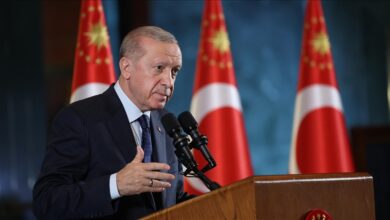
German Interior Ministry: Lifting the ban on deporting Syrians does not include everyone
Germany decided last December to lift the general ban on deporting Syrians from Germany to their country, but it does not include all Syrians.
The German Deputy Interior Minister, Stefan Mayer, said today, Saturday: “The decision to lift the ban on deporting Syrians will not include ordinary Syrians who have not committed crimes, and the issue is limited to perpetrators,” according to what was reported by the German website DW.
Mayer added: “The decision to lift the ban on deporting Syrians is necessary to secure citizens,” stressing that people who have committed crimes do not have “the right to remain in Germany and they must leave our country.”
He explained: “The general ban on deportation to Syria has led to the possibility of extremist and Islamic jihadists and jihadists committing crimes in Germany without fear of deportation to Syria.”
He stressed that everyone who committed crimes will be prosecuted and the punishment applied in Germany, but what will happen after that, according to Meyer, is that “it will be possible at least to deport potential perpetrators or people who have committed serious crimes.
The deputy interior minister told DW: “There is no understanding among the Germans that people who have committed extremely serious crimes have the right to stay in Germany as they want, and they must leave our country, because they have no legal right to stay”.
On December 11, 2020, the German Interior Ministry decided not to renew the ban imposed on deportations to Syria.
This came, then, at a virtual meeting of the interior ministers of the German states, and 16 ministers rejected the calls of the “Democratic Party” to extend the ban.
While 48 human rights and civil organizations and institutions called in a joint statement, European governments, most notably the German and Danish governments, to backtrack on all decisions that violate the principle of non-refoulement, which would force refugees, directly or indirectly, to return to Syria.
The organizations said that changes to asylum policies in several European countries may pave the way for a violation of the principle of non-refoulement and the first protocol of the European Convention on Human Rights, calling for a reassessment of integration policies to allow refugees to effectively engage in their host societies, taking into account the circumstances they went through. Especially victims of wars and conflicts.
The organizations called for organizing support programs for refugees in neighboring countries, beyond securing basic needs to a more sustainable situation, especially in livelihoods, improving their legal status, and combating hate speech against them in these countries in cooperation with governments, civil institutions and the media.




